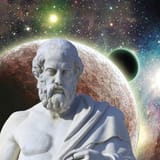Search Results
6/26/2025, 3:11:06 PM
6/22/2025, 2:07:54 AM
Injustice, at its core, is the absence or violation of justice. It's a broad and multifaceted concept that permeates various aspects of human existence, from individual interactions to systemic structures. At its heart, injustice represents a failure to uphold what is right, fair, and equitable.
The Soul and its Tripartite Nature: Plato believed the human being consists of a mortal body and an immortal soul. He further divided the soul into three parts:
Rational (Logistikon): Located in the head, responsible for reason, wisdom, and the pursuit of truth. This is the guiding part of the soul.
Spirited (Thymoeides): Located in the chest, representing emotions like courage, honor, and ambition.
Appetitive (Epithymetikon): Located in the belly, representing desires for food, drink, sex, and material possessions. Plato argued that a just and harmonious individual is one where the rational part of the soul governs the spirited and appetitive parts.
The Soul and its Tripartite Nature: Plato believed the human being consists of a mortal body and an immortal soul. He further divided the soul into three parts:
Rational (Logistikon): Located in the head, responsible for reason, wisdom, and the pursuit of truth. This is the guiding part of the soul.
Spirited (Thymoeides): Located in the chest, representing emotions like courage, honor, and ambition.
Appetitive (Epithymetikon): Located in the belly, representing desires for food, drink, sex, and material possessions. Plato argued that a just and harmonious individual is one where the rational part of the soul governs the spirited and appetitive parts.
6/18/2025, 10:37:40 AM
6/13/2025, 11:12:03 PM
In Plato’s thought:
The Form of the Good is the highest and most fundamental of all Forms.
It is not a good thing, but the source of all goodness, truth, and even being itself.
Just as the sun gives light to physical objects so we can see them, the Form of the Good gives intelligibility to all other Forms so that the mind can understand them.
Is God the Form of the Good?
Plato doesn’t talk about "God" in the Abrahamic sense (like in Christianity or Islam), but many later thinkers, especially Christian and Islamic philosophers, identified:
God = the Form of the Good
For example:
Plotinus (Neoplatonist): Described "The One" as the source of all reality, similar to God.
Augustine: Merged Plato’s Form of the Good with the Christian God.
Al-Ghazali and Avicenna (Ibn Sina): Integrated Platonic and Islamic views, seeing God as the necessary being and ultimate cause of all good.
The Form of the Good is the highest and most fundamental of all Forms.
It is not a good thing, but the source of all goodness, truth, and even being itself.
Just as the sun gives light to physical objects so we can see them, the Form of the Good gives intelligibility to all other Forms so that the mind can understand them.
Is God the Form of the Good?
Plato doesn’t talk about "God" in the Abrahamic sense (like in Christianity or Islam), but many later thinkers, especially Christian and Islamic philosophers, identified:
God = the Form of the Good
For example:
Plotinus (Neoplatonist): Described "The One" as the source of all reality, similar to God.
Augustine: Merged Plato’s Form of the Good with the Christian God.
Al-Ghazali and Avicenna (Ibn Sina): Integrated Platonic and Islamic views, seeing God as the necessary being and ultimate cause of all good.
Page 1
